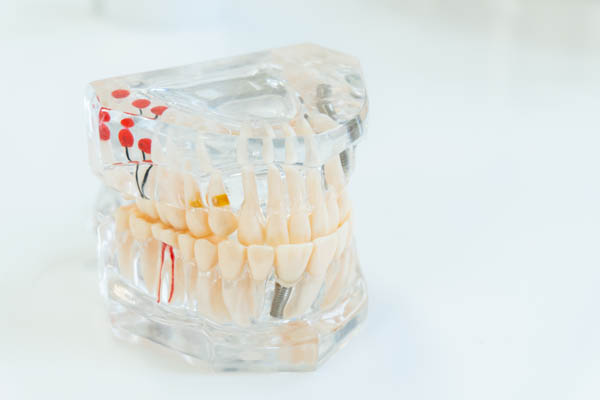Replacing a Missing Tooth with a Single Dental Implant

A general dentist can use a dental implant to replace a missing tooth. It can also be a solution to a failing tooth. This dental restoration is the most secure form of dental replacement. If you want to know more about replacing a lost tooth with a single dental implant, here are the details.
Consequences of a damaged or missing tooth
One missing or damaged tooth can result in multiple problems. Losing a tooth often causes low self-image and depression. A tooth with severe damage can cause intense pain and discomfort. Many people suffer from these dental issues.
A dental gap in the mouth makes chewing and biting challenging. The space leaves the neighboring teeth vulnerable to loosening. The stability for biting and chewing reduces. Teeth tend to shift into the gap. This changes the person’s bite and dental alignment over time.
Severe damage in a tooth results in gum disease. The infection in the tooth spreads to the gums. It can even produce cysts around the tooth. This results in foul breath. Avoiding speaking or even smiling is a common result of losing a tooth, especially in the front part of the mouth.
Bone loss is another problem a dental implant can remedy. Losing a tooth means losing a dental root. This tells the body to stop sending nutrients to that area of the jaw. Tissue repair and cell growth stop because there is no tooth to sustain anymore. This results in bone loss in that section of the jaw.
Replacing a tooth with a single dental implant
There will be a comprehensive consultation first. Then, the general dentist will determine if the patient has significant bone loss in the area of the missing tooth. A bone graft must come first if there is bone loss. This will take at least two months to heal. Only then will the dentist start the dental implant surgery.
The procedure starts by anesthetizing the area of the dental gap. Drilling a dental implant pocket will be next. The general dentist will then place a titanium rod into the implant pocket. Stitching the gum tissue over the rod will keep it in place. This closure will help the rod fuse with the jawbone and gum tissue. Full recovery will take three to six months, depending on the person’s ability to heal.
Regular checkups after the dental implant surgery will allow the general dentist to check the progress of the osseointegration. The complete fusion of the titanium rod, jawbone, and gums will prompt the placement of the abutment. This will be possible by cutting into the implant site again. The dentist will stitch the gum around the base of the abutment. This will heal for about two weeks. Then, the patient will return to the dental clinic for the placement of the custom-fit dental crowns.
A dental implant can replace your missing tooth and improve your oral health
Tooth loss is a common dental problem. Its consequences can affect your oral health and quality of life. A single dental implant can help you regain your lost tooth. It can also bring back the beauty and joy in your smile.
Are you considering getting a dental implant in the Sun Prairie area? Get more information at https://608familydental.com.
Check out what others are saying about our dental services on Yelp: Dental Implants in Sun Prairie, WI.
Related Posts
Dental implants are one of the most common ways to replace missing teeth in general dentistry nowadays. These are screws or rods (typically made out of titanium) that can serve as artificial teeth roots. Oral restorations like crowns are fitted to implants to replace missing teeth. Implants are constructed to last a lifetime, but the…
The introduction of dental implants has provided a solution to tooth replacement that goes beyond mere function to address the core of personal well-being. Loss of teeth has an impact on a lot more than just dental health — it impacts chewing, talking ability, and confidence. This is where dental implants come into play as…
Dental implant restorations have transformed dentistry by offering a versatile and reliable solution for replacing missing teeth. This approach to smile restoration seamlessly combines durability and natural aesthetics, restoring oral function and appearance. Because implant restorations can support different types of dental prosthetics, they address a variety of needs while preserving oral health. Understanding the…
Tooth extractions are common dental procedures performed by general dentists. They can be a result of decay, disease, or a fracture. While the dentist may introduce it to preserve oral health, it is important to know what to expect during and after the operation.There are two types of tooth extractions, namely simple and surgical. Most…
